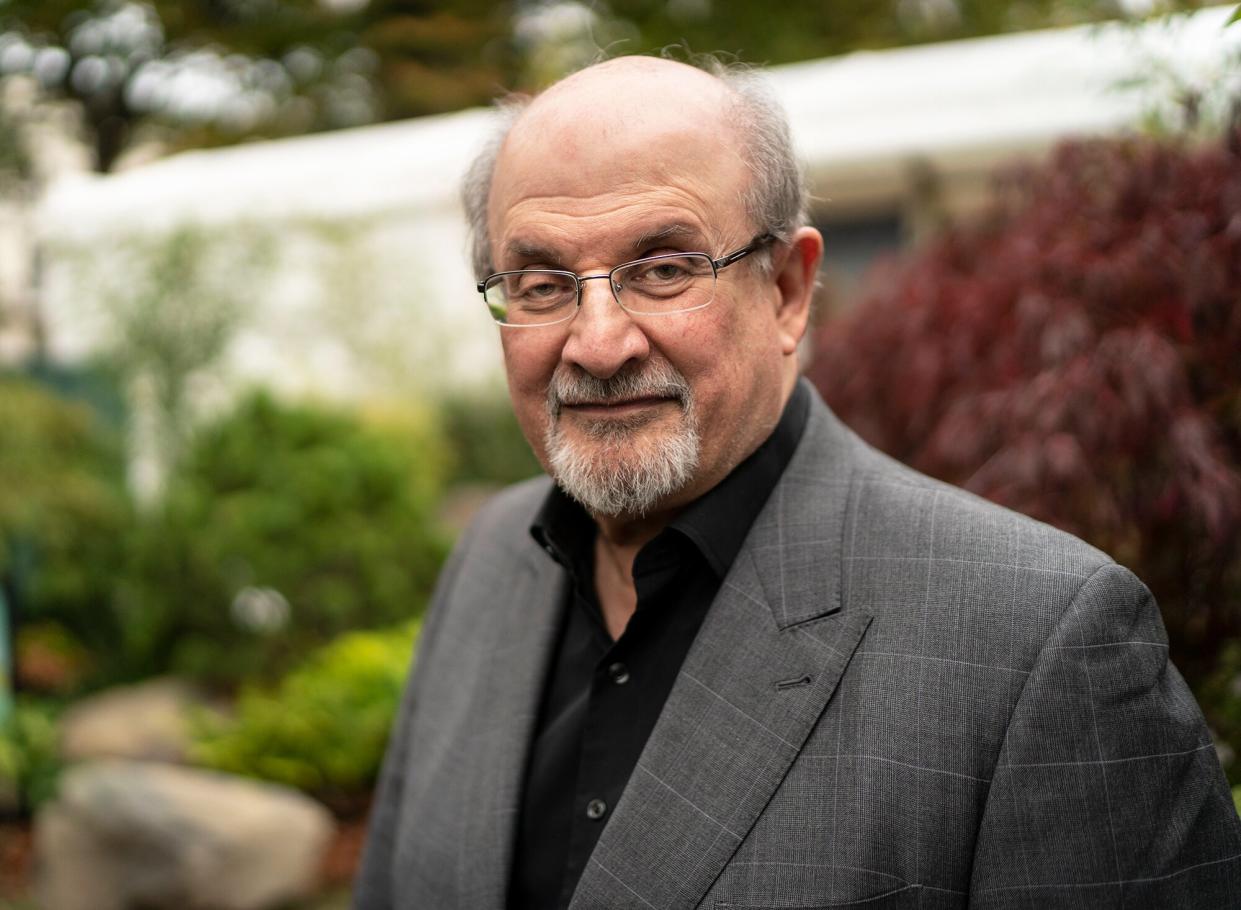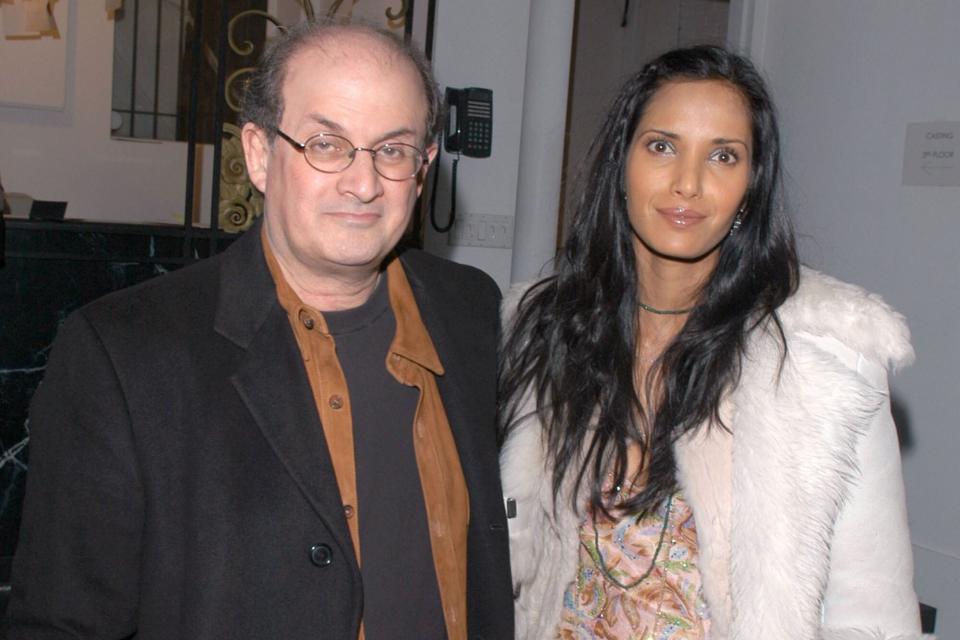Salman Rushdie Lost Sight in Eye and Use of Hand Following Stabbing Attack, Agent Says

- Oops!Something went wrong.Please try again later.
David Levenson/Getty Salman Rushdie
Salman Rushdie has reportedly lost sight in one eye and lost the use of one of his hands after he was attacked and stabbed on stage at a literary festival at New York State's Chautauqua Institution back in August.
The famed author's literary agent Andrew Wylie revealed Rushdie's condition while giving an update on his health status in a new interview with Spanish language newspaper El Pais published Friday.
Rushdie, 75, was left with 15 wounds in his chest and torso and three serious wounds to his neck after the "brutal attack," Wylie told the outlet, adding that nerves to one of Rushdie's arms were cut by the assailant's knife.
Hadi Matar, 24, of New Jersey has since been jailed and pleaded not guilty to attempted murder and assault. Ralph Henry Reese hurt was also hurt in the incident as well, with a minor head injury.
Previously, New York State police said that Rushdie suffered more than one stab wounds, "at least once in the neck and at least once in the abdomen."
The Indian-born British-American novelist was sent to a Pennsylvania hospital and treated with a ventilator.
RELATED: Salman Rushdie Off Ventilator, But Injuries Are 'Life Changing,' Son Says

David Levenson/Getty
Wylie did not elaborate on Rushdie's whereabouts now, telling El Pais that he couldn't disclose where Rushdie was at the time of the interview.
He also told the outlet that the attack was something you "can't protect against" since it was "totally unexpected and illogical," and ultimately came from a "random person coming out of nowhere."
"He's going to live ... That's the important thing," Wylie said, comparing the attack to the murder of musician John Lennon in 1980.
Wylie did not immediately respond to PEOPLE's request for further comment.
Days after the attack in August, the author's son Zafar Rushdie said his father was removed from the ventilator he was put on, remaining in critical condition in the hospital and "receiving extensive ongoing medical treatment."
"We are extremely relieved that yesterday he was taken off the ventilator and additional oxygen and he was able to say a few words," Zafar shared in a statement at the time. "Though his life changing injuries are severe, his usual feisty & defiant sense of humor remains intact."

Djamilla Rosa Cochran/WireImage
RELATED: Padma Lakshmi Says She's 'Relieved' Ex-Husband Salman Rushdie Is 'Pulling Through' After Stabbing
New York State Police took Matar into custody after the attack, according to the Associated Press, before Rushdie was airlifted to the hospital on Aug. 12. As described by author Carl LeVan on Twitter, Rushdie "was stabbed multiple times before [the] attacker was subdued by security." The event's audience was then evacuated from the lecture.
Want to keep up with the latest crime coverage? Sign up for PEOPLE's free True Crime newsletter for breaking crime news, ongoing trial coverage and details of intriguing unsolved cases.
Rushdie rose to prominence in 1989 when his book The Satanic Verses — which featured a fictional interpretation of the Prophet Mohammed and the Quran — was deemed as blasphemy by Iranian leader Ayatollah Ruhollah Khomeini. Khomeini then issued a fatwā for his assassination, so the author went into hiding until 1998 when the bounty for whoever kills him remained active. At the time, the Iranian government said it would no longer enforce the fatwā.
In a statement after the attack, PEN America CEO Suzanne Nossel said, "PEN America is reeling from shock and horror at the word of a brutal, premeditated attack on our former President and stalwart ally, Salman Rushdie."
"We can think of no comparable incident of a public attack on a literary writer on American soil," the statement continued.

